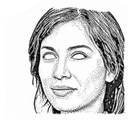As Turkey prepares for the upcoming presidential and parliamentary elections, concerns are growing about the fairness of the vote. Media coverage is seen as an example of how President Erdogan enjoys an advantage over his opponents, but factors such as the use of state resources while campaigning and the questionable interpretation of electoral law also feature.
The main opposition Republican People’s Party (CHP) has launched legal action against broadcaster TRT for failing to screen its campaign video. "The government's control over media outlets is a clear indication that they want to dictate what information reaches voters," stated CHP spokesperson Emre Demir.
In addition to media coverage, opposition parties have criticized President Recep Tayyip Erdogan's leadership and use of state resources in his favor during campaign events. The government has also extended its reach over social media, where many opposition voices have retreated due to harsh conditions imposed on traditional platforms.
A “disinformation” law introduced in October allows for a jail sentence of up to three years for spreading false information “with the sole aim of creating anxiety, fear or panic among the public." This legislation led one journalist, who wishes to remain anonymous fearing retaliation from authorities, serving a 10-month prison term after being accused by officials.
The imposition of a state-of-emergency across 11 provinces hit by February's catastrophic earthquake raises further concerns regarding election conduct within affected regions. Opposition parties have taken legal action seeking guarantees that these extraordinary circumstances will not be exploited during polls and ensuring an equal playing field for all candidates involved.
One notable case involves local architect Ercüment Kimyon joining forces with C.H.P., party founded by Mustafa Kemal Atatürk. Together they filed suits against projects deemed unwise—like constructing airports on deteriorating former lake beds—that were backed by Prime Minister Erdogan himself back in 2007. These instances continue highlighting potential dangers associated with the current administration's decisions and their impact on Turkey's infrastructure.
As these concerns mount, Turkish citizens and international communities alike are waiting to see whether the upcoming elections will be conducted in a fair manner. "There is an urgent need for transparency and accountability during this crucial time," said political analyst Elif Korkmaz. "Only then can we have confidence in the results, regardless of who wins."
